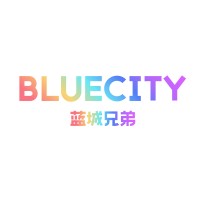Pragmatism and smart consumption values permeate the Chinese LGBT community
BlueCity, a world-leading LGBTQ platform that provides a full suite of services aimed at fostering connection and enhancing the well-being of its global community, has released the 2022 LGBT Consumption Behavior in China and Trend Insights Report, carried out in conjunction with Ipsos.
Conducted in the last quarter of 2021, the research surveyed 2202 respondents online, delving into the mindset, values, lifestyles and consumption behaviors of today’s Chinese LGBT consumers.
Findings include growing pragmatism amidst an uncertain economic climate and the important role that values play in determining brand resonance.
Main findings
- Pragmatism and smart consumption values permeate the LGBT community. When it comes to the factors influencing purchase decisions, LGBT consumers in general give more weight to product price (50%), product content and quality (39%), and word-of-mouth (37%). Moreover, brands that stress function and practicality resonate the most (49%), followed by those that reflect an ordinary, comfortable life (41%), those that emphasize uniqueness and individuality (38%), and those that connote quality and elegance (27%).
- LGBT consumers pay close attention to a brand’s stance on LGBT issues and whether action is genuine. 56% of respondents think companies should not engage in queerbaiting while 51% dislike marketing that overemphasizes or deliberately employs LGBT stereotypes.
- Consumption priorities are diversifying and shifting. While LGBT consumers currently care most about food & beverage, followed by health & fitness, and home & decor, they reflect diversifying priorities and a greater emphasis on well-being. Moving forward, respondents report that they will focus primarily on the health & fitness, followed by food &beverage, leisure & entertainment, and education & development categories.
- Japan (33%), Thailand (32%), and Iceland (15%) are the top international destinations while Sichuan Province (28%), Yunnan Province (25%), and Tibet (24%) are the leading preferred domestic travel destinations among the overall respondents.
- LGBT consumers by and large prefer Huawei (62%) as their favorite hardware brand, followed by Apple (46%) and Xiaomi (31%). Among health service brands, Keep, a health & fitness lifestyle app, was the clear leader at 52%, largely buoyed by its strategic crossover collaborations with other brands.
The report also identified several LGBT subgroups, going beyond “lesbian”, “gay”, “bisexual”, and “transgender” to pinpoint generational differences and categorize them based on consumption style. Moreover, the report also uncovers differences between the LGBT and total population by generation. While the post-65 demographic is largely focused on well-being as they age, this age tranche among the LGBT population is more focused on managing risk and overcoming precarity. Similar differences also exist among the younger generation. While the post-95 youth look to develop hobbies and turn their interests into a lifestyle, the LGBT members of this generation are focused on standing up for their rights and finding ways to live for themselves.
In terms of consumer lifestyle segmentation, the report highlighted four groups – Homebodies, Pragmatists, Hedonists, and Materialists.While all groups demonstrate high interest in home décor, food & beverage, and health & fitness, the former two showcase more rational decision-making while the latter two place a greater emphasis on quality and style.
The report primarily surveyed young and middle-aged respondents from a mid-to-high income bracket and with a higher education background. 26% of respondents reside in tier-one cities, while 30% live in tier-two cities and 41% in tier-three cities. In terms of LGBT group affiliation, the proportion of respondents who self-identify as gay was the highest (51%), followed by bisexual and lesbian respondents (22% and 19%, respectively). Moreover, 89% of those surveyed have partly or fully come out, while 58% indicate a positive relationship with their sexual identity. In terms of future outlook, 42% note that they are highly satisfied with their current lives, while 67% believe that the future is promising.
BlueCity has played an instrumental role in the history of LGBT research in China. In 2014, Blued, its social media app, partnered with Community Marketing, Inc. (CMI), WorkForLGBT, and 20 other LGBT organizations on the first-ever China LGBT Group Living Consumption Index Survey Report. Since its pioneering debut, the report has followed up with new editions in 2015 and 2016.




